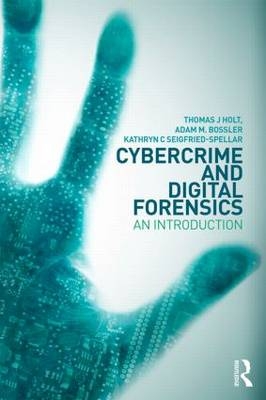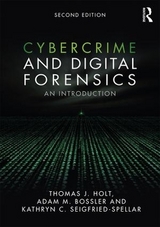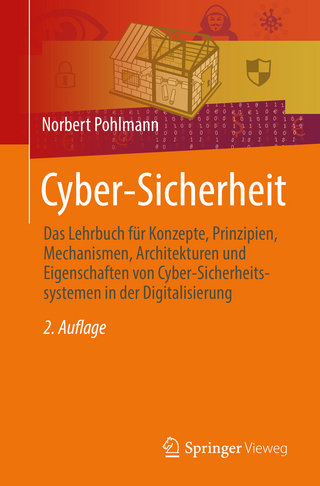
Cybercrime and Digital Forensics
Routledge (Verlag)
978-1-138-02130-3 (ISBN)
- Titel erscheint in neuer Auflage
- Artikel merken
This book offers a comprehensive and integrative introduction to cybercrime. It is the first to connect the disparate literature on the various types of cybercrime, the investigation and detection of cybercrime and the role of digital information, and the wider role of technology as a facilitator for social relationships between deviants and criminals. It includes coverage of:
key theoretical and methodological perspectives,
computer hacking and digital piracy,
economic crime and online fraud,
pornography and online sex crime,
cyber-bulling and cyber-stalking,
cyber-terrorism and extremism,
digital forensic investigation and its legal context,
cybercrime policy.
This book includes lively and engaging features, such as discussion questions, boxed examples of unique events and key figures in offending, quotes from interviews with active offenders and a full glossary of terms. It is supplemented by a companion website that includes further students exercises and instructor resources. This text is essential reading for courses on cybercrime, cyber-deviancy, digital forensics, cybercrime investigation and the sociology of technology.
Thomas J. Holt is an Associate Professor in the School of Criminal Justice at Michigan State University whose research focuses on computer hacking, malware, and the role of the Internet in facilitating all manner of crime and deviance. He received his Ph.D. in criminology and criminal justice from the University of Missouri-Saint Louis in 2005. His work has been published in various journals including Crime and Delinquency, Deviant Behavior, the Journal of Criminal Justice, and Youth and Society. Adam M. Bossler is an Associate Professor of Criminal Justice and Criminology at Georgia Southern University. He earned his doctorate in criminology and criminal justice from the University of Missouri - St. Louis. His research focuses on examining the application of traditional criminological theories to cybercrime offending and victimization, how law enforcement responds to cybercrime, and exploring innovative correctional programs. His most recent publications can be found in Crime & Delinquency, Youth & Society, American Journal of Criminal Justice, Policing, and Journal of Criminal Justice. Kathryn C. Seigfried-Spellar is an Assistant Professor in the Department of Criminal Justice at The University of Alabama. She received her Ph.D. in cyberforensics from Purdue University in 2011. Dr. Seigfried-Spellar studies the personality characteristics and socio-legal factors associated with computer deviance, including Internet child pornography use, hacking, sexting, and cyberbullying. In addition, Dr. Seigfried-Spellar has published in the area of digital forensics, specifically the ability to conduct a behavioral analysis of digital forensic evidence seized from child pornography investigations.
1. Technology and Cybercrime 2. Computer Hackers and Hacking 3. Malware and Automated Computer Attacks 4. Digital Piracy and Intellectual Property Theft 5. Economic Crimes and On-Line Fraud 6. Pornography, Prostitution, and Sex Crimes 7. Cyberbullying, On-Line Harassment, and Cyberstalking 8. On-line Extremism, Cyberterror, and Cyber Warfare 9. Cybercrime and Criminological Theories 10. Evolution of Digital Forensics 11. Acquisition and Examination of Forensic Evidence 12. Legal Challenges in Digital Forensic Investigations 13. The Future of Cybercrime, Terror, and Policy.
| Zusatzinfo | 6 Line drawings, black and white; 22 Halftones, black and white; 28 Illustrations, black and white |
|---|---|
| Verlagsort | London |
| Sprache | englisch |
| Maße | 156 x 234 mm |
| Gewicht | 732 g |
| Themenwelt | Informatik ► Netzwerke ► Sicherheit / Firewall |
| Recht / Steuern ► Privatrecht / Bürgerliches Recht ► IT-Recht | |
| Recht / Steuern ► Strafrecht ► Kriminologie | |
| ISBN-10 | 1-138-02130-X / 113802130X |
| ISBN-13 | 978-1-138-02130-3 / 9781138021303 |
| Zustand | Neuware |
| Informationen gemäß Produktsicherheitsverordnung (GPSR) | |
| Haben Sie eine Frage zum Produkt? |
aus dem Bereich



